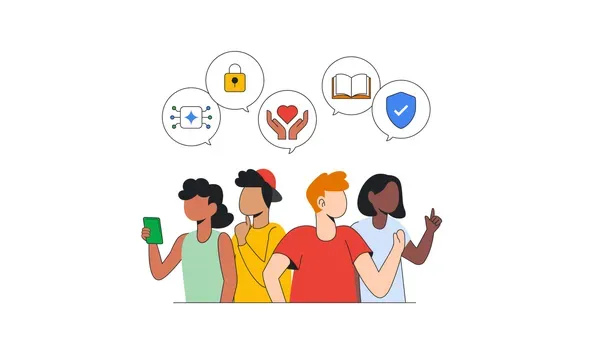Google just released findings from surveying over 7,000 teenagers across Europe about their relationship with AI and technology. The research reveals a stark generational divide - while 96% of older teens used AI in the past year and 40% use it daily, 28% report their schools haven't approved any AI tools. The study suggests we're witnessing the emergence of Europe's first truly AI-native generation, one that's shaping technology rather than simply consuming it.
Google just dropped a reality check for European educators and parents. The tech giant's new research with youth consultancy Livity reveals that while Europe's teenagers are racing ahead with AI adoption, institutions meant to guide them are struggling to keep up. The data comes from surveying over 7,000 teens aged 13-18 across Ireland, Poland, Greece, Spain, Italy, France, and Sweden - representing one of the largest studies of European teen tech habits to date.
The numbers paint a picture of a generation that's not just using AI, but actively integrating it into their daily lives. Nearly all older teens (96%) have used AI in the past year, with 4 out of 10 using it daily or almost daily. But here's where it gets interesting - they're not using it as a crutch. According to the research, 81% say AI improves their creativity, while 65% use it to "come up with new ideas or solutions to problems." Another 47% rely on AI to "explain difficult topics in different ways."
"I think school is lagging behind," Ali, an 18-year-old from Sweden, told researchers. "I think we should learn how to use AI in a better way than what we do now." The comment highlights a growing frustration among students who see AI as a learning accelerator while educational institutions remain cautious or outright ban these tools.
The institutional disconnect runs deep. More than a quarter of teens (28%) report their schools haven't approved any AI tools, creating an awkward dynamic where students are more digitally literate than their educators. This gap could have serious implications for Europe's competitive position in the global AI race, especially as other regions embrace AI education more aggressively.
What's particularly striking is how these teens approach AI with a level of digital literacy that might surprise critics. The majority (55%) actively consider whether AI-generated content is trustworthy, and nearly half (46%) cross-check information against other sources. As Jack, 17, from Ireland put it: AI "shouldn't do the thinking for you." This suggests Europe's teens are developing sophisticated AI literacy skills organically, without formal guidance.
The research also reveals a critical window for parental influence that's rapidly closing. Parents remain the most trusted source for online safety advice among younger teens, with 54% of 13-15 year-olds turning to guardians for guidance. But that trust plummets to just 19% among 16-18 year-olds, suggesting families have a narrow window to establish healthy digital habits.












